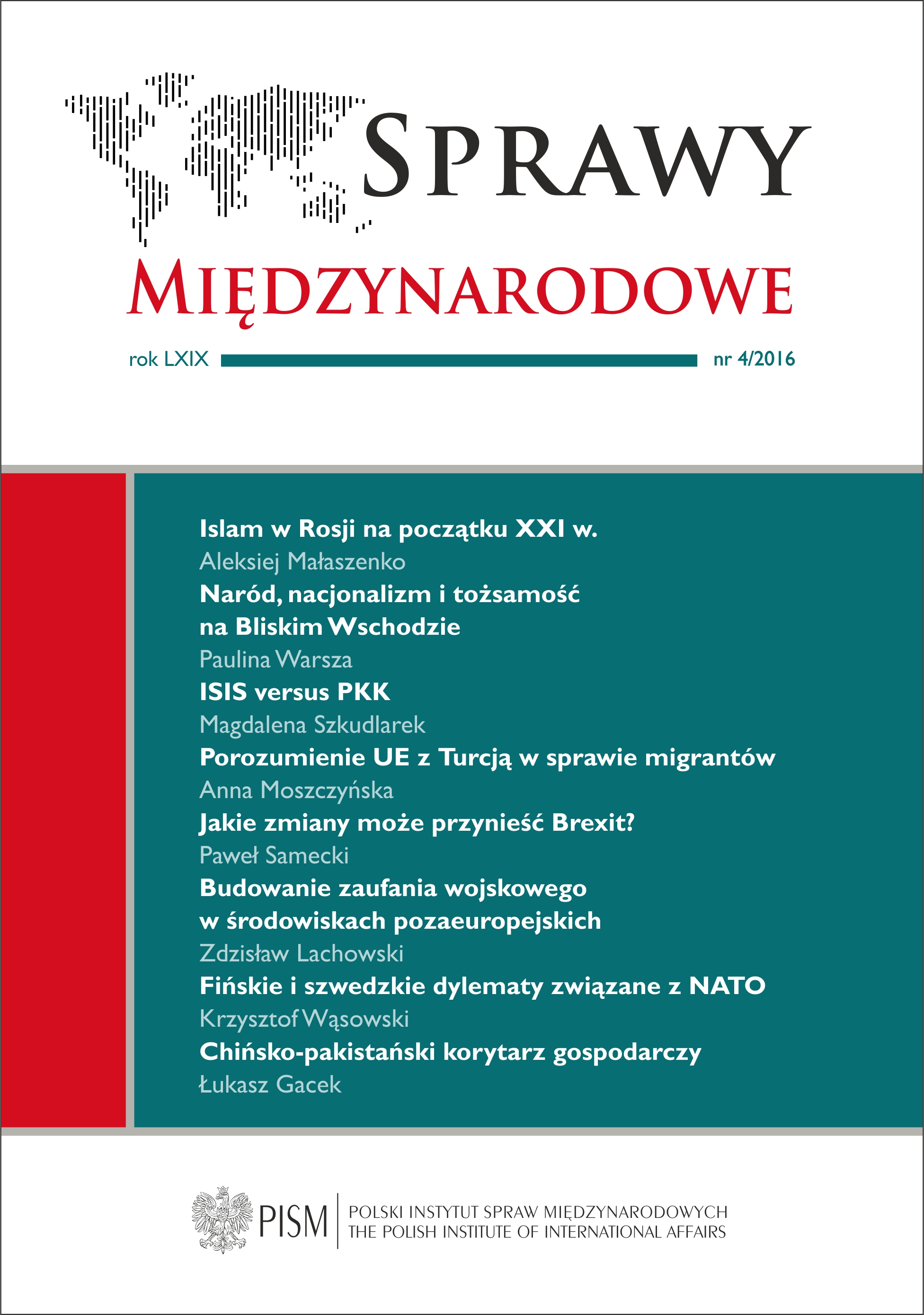Naród, nacjonalizm i tożsamość na Bliskim Wschodzie
Nation, Nationalism and Identity in the Middle East
Author(s): Paulina WarszaSubject(s): Politics / Political Sciences, Politics, Nationalism Studies
Published by: PISM Polski Instytut Spraw Międzynarodowych
Summary/Abstract: The fundamental challenge facing Middle Eastern societies is the need for redefining shared identity. Developments in the Middle East can be perceived through a prism of a delayed recovery from the colonial system. In this perspective subsequent wars, the Arab Spring or the emergence and success of ISIS are interrelated steps of creating a post-colonial order in the region. In the Middle East a unifying idea was needed to which the political elites could immediately appeal to suppress tribal or ethnic divisions, although in the Arab world the new categories and divisions do not disavow the previous identities: tribal, ethnic or religious. Following Tanzimat reforms, modern Ottoman nationalism emerged from the erosion of the empire, soon to be replaced by Pan-Islamism and pan-Arabism—two expressions of identity based on religion or cultural community that remain fundamental in this part of the world. When the Arabs had to adjust to the situation after the collapse of the mandate system, the terms that emerged (e.g. qawmiyya) seem closer to the European perspective of a nation, even if they still reflect only certain aspects of the Arab sense of community and belonging.
Journal: Sprawy Międzynarodowe
- Issue Year: 2016
- Issue No: 4
- Page Range: 22-34
- Page Count: 13
- Language: Polish

